How to harvest coneflower seeds – for more fabulous flowers next year
Collecting echinacea seeds is an easy way to grow new blooms for free

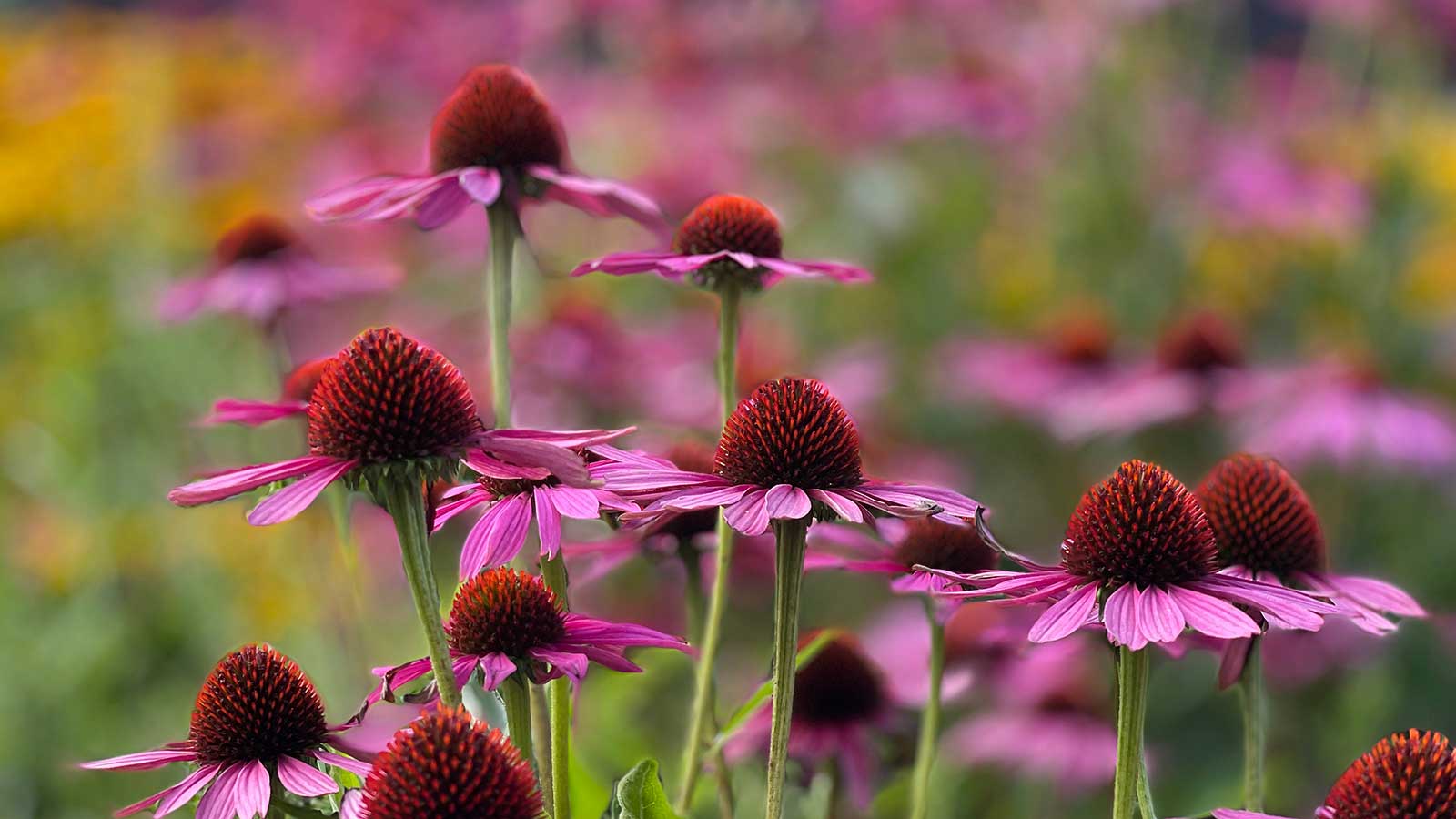
Design expertise in your inbox – from inspiring decorating ideas and beautiful celebrity homes to practical gardening advice and shopping round-ups.
You are now subscribed
Your newsletter sign-up was successful
Want to add more newsletters?

Twice a week
Homes&Gardens
The ultimate interior design resource from the world's leading experts - discover inspiring decorating ideas, color scheming know-how, garden inspiration and shopping expertise.

Once a week
In The Loop from Next In Design
Members of the Next in Design Circle will receive In the Loop, our weekly email filled with trade news, names to know and spotlight moments. Together we’re building a brighter design future.

Twice a week
Cucina
Whether you’re passionate about hosting exquisite dinners, experimenting with culinary trends, or perfecting your kitchen's design with timeless elegance and innovative functionality, this newsletter is here to inspire
Coneflowers, otherwise known as echinacea, are a gorgeous addition to the summer garden. A favorite for prairie-style planting and attracting pollinators, these drought-tolerant perennials stand tall, with their statement flowerheads swaying gently in the breeze. And if you're as much of a fan as we are, and you already have one or two plants in your yard, why not expand your collection by collecting and sowing the seeds?
Harvesting seeds is a wonderfully rewarding job that often gets overlooked. This gardening task can be done with all types of flowers in the fall, but coneflowers are one of the best perennials to collect from, as the large seedheads are easy to handle.
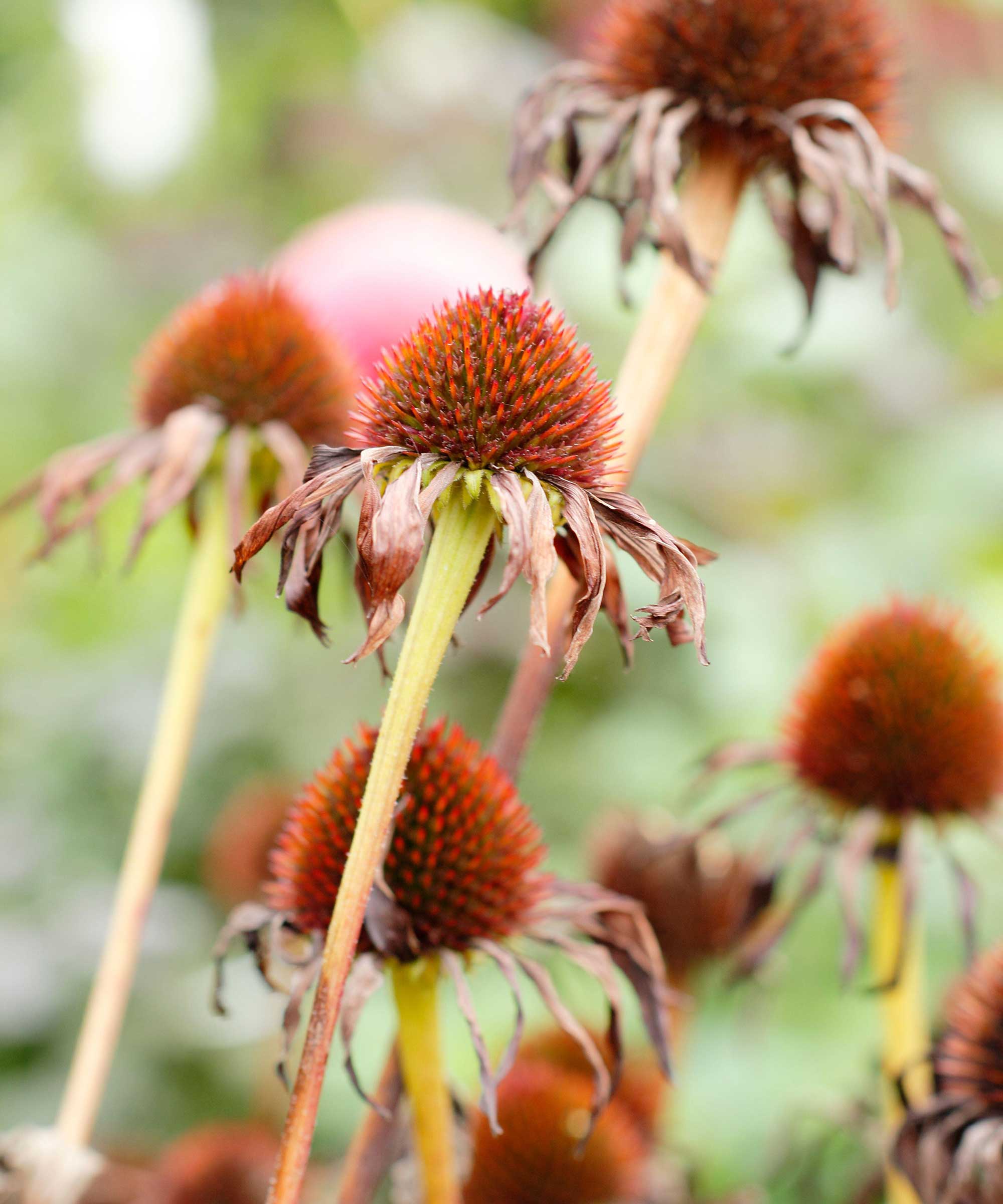
Each echinacea flower has lots of seeds
How to harvest coneflower seeds by hand
To harvest seeds from your coneflowers, you'll need to hold back on the deadheading coneflowers – at least on a few stems. Leave these remaining wilted flowerheads intact.
Wait until the petals have died and fallen off and the only part that remains is the spiky center, says Anna Ohler, the Owner of Bright Lane Gardens nursery. Then, you can snip them from the plant using a pair of pruners.
Next, you need to dry the seedheads, says Anna. You can do this in a dehydrator on low for a few hours, or you can put them in a paper bag placed in a warm area with decent air circulation. 'Do not dry the heads out in the sun, as too much sun can damage the seeds,' she adds.
Then, it's time to extract the small, brown seeds. Remember to wear gardening gloves, such as the Pine Tree Tools bamboo gardening gloves from Amazon, to protect your hands – the seedheads are quite spiky. 'The seeds should come off pretty easily once the seedhead is fully dried,' Anna says.
You can use your thumb to run over the seeds and loosen them from the head. Or, you can put the seedhead in a container with a lid and gently shake it until most of the seeds have been released, Anna instructs. Pick out and discard the chaff where possible.
Design expertise in your inbox – from inspiring decorating ideas and beautiful celebrity homes to practical gardening advice and shopping round-ups.
Top tip: Avoid harvesting seeds from hybrid varieties of echinacea, as they are often sterile. And even if they do propagate, the resulting plants generally won't have the same characteristics as their parents.
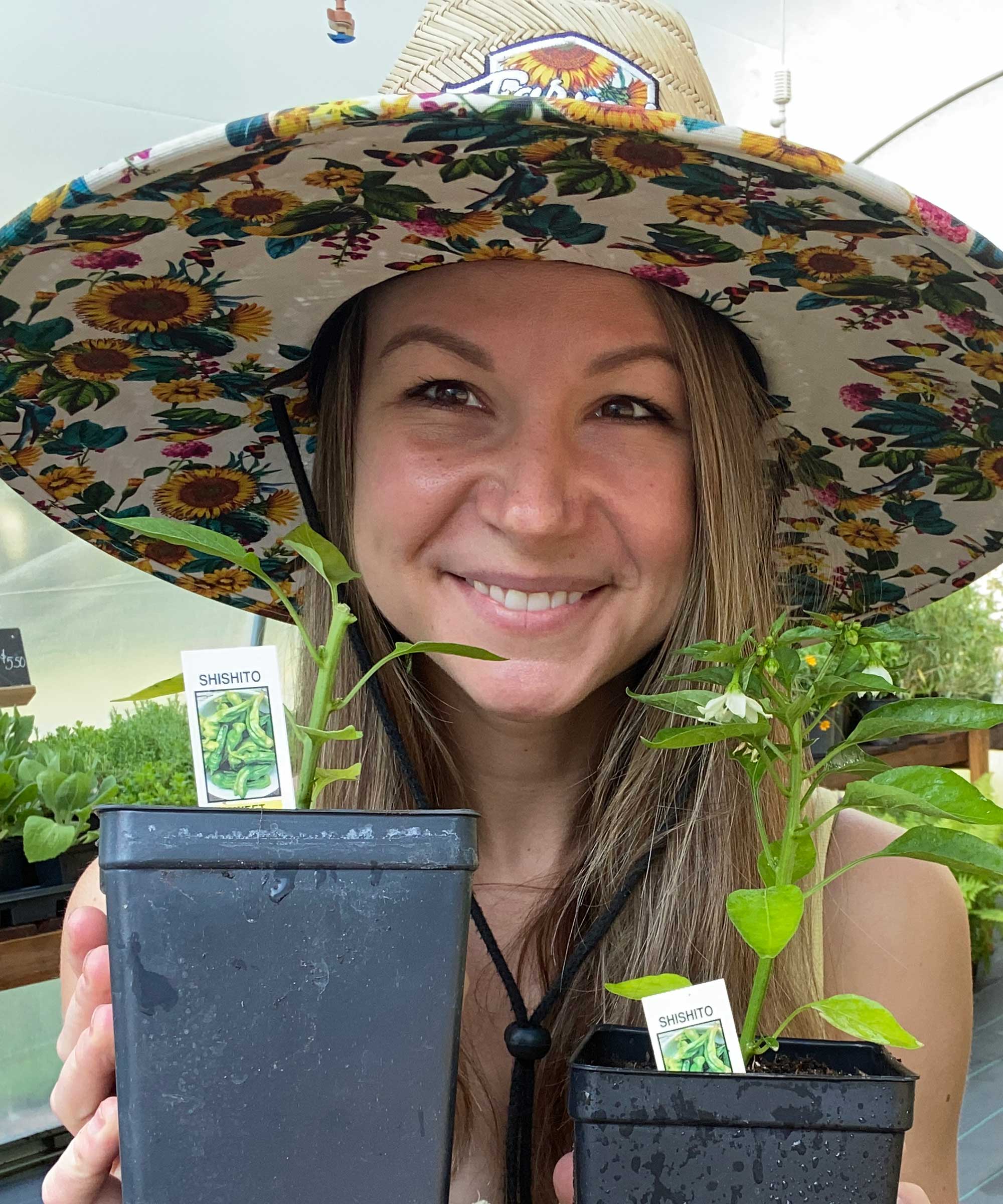
Anna is an avid plant hobbyist and the Owner and Operator of Bright Lane Gardens, a boutique plant nursery in Northern Michigan. With over a decade of experience in gardening and landscaping, she takes every opportunity to share her knowledge on all things plant related.
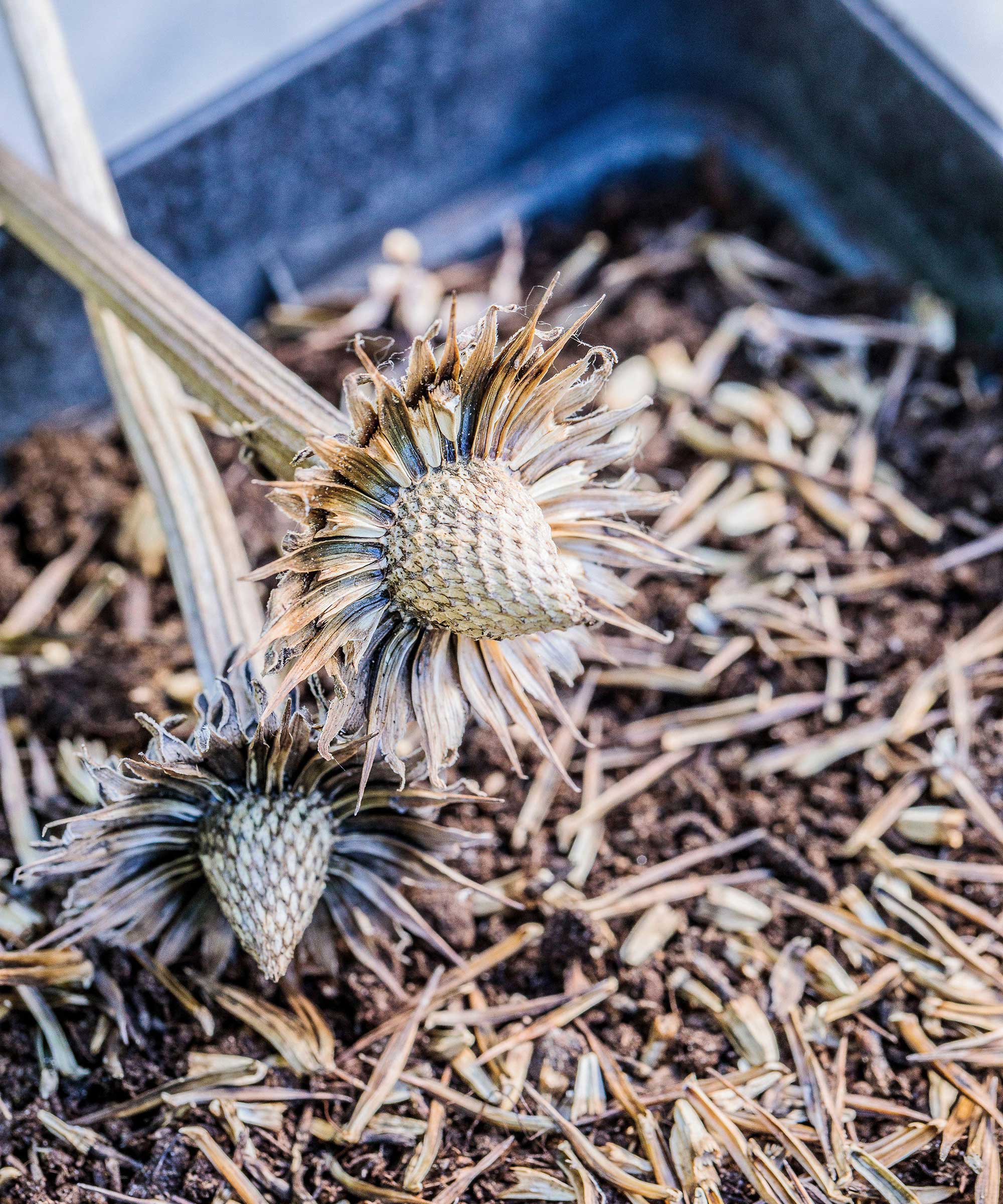
You can remove the seeds by hand, over a container
How to harvest coneflower seeds using a paper bag
Another method for collecting coneflower seeds is to use a paper bag. When you remove the seedhead, leave a bit more of the stem intact. Then, tie a paper bag around the seedhead, and a bit of string around the base of the stem to hang it upside down. The seeds will fall out naturally over time.
You can then open the bag and separate out any chaff, before sowing or storing the seeds.
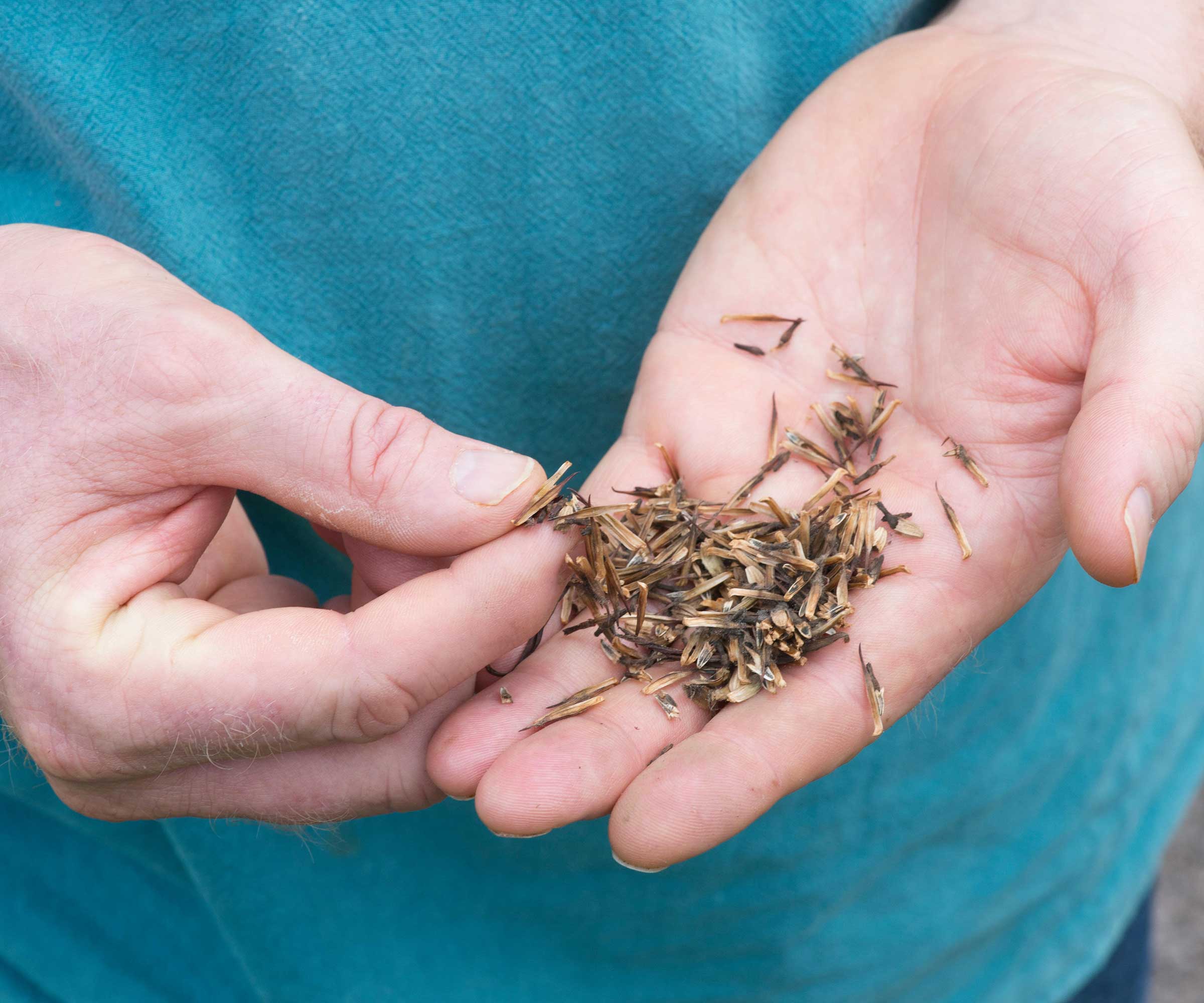
Sow echinacea seeds in late summer or in the fall
How to use or store coneflower seeds
You can sow your coneflower seeds straightaway, directly into the ground.
Alternatively, you can start them off in pots indoors. When it comes to planting them out in your flower beds, harden them off first. 'If you have heavy soil, condition it by digging in lots of well-rotted organic matter before planting out your echinaceas, or plant them on small mounds of soil mixed with grit and compost so their roots drain better,' recommends gardening expert John Negus.
If you don't want to sow them yet, you can store the coneflower seeds. 'Make sure you store any seeds in a dry, dark place,' says Anna, who puts hers in mini envelopes. Remember to label them clearly, including the date. The seeds should remain viable for at least a couple of years.
Just one flower can produce lots of new seeds – which means plenty of potential for new plants. So, there's no need to harvest all of them. Instead, you can leave some on the plant where they may gently self-sow. And, they'll also provide a source of food for birds as the weather begins to cool, making your yard more wildlife-friendly.
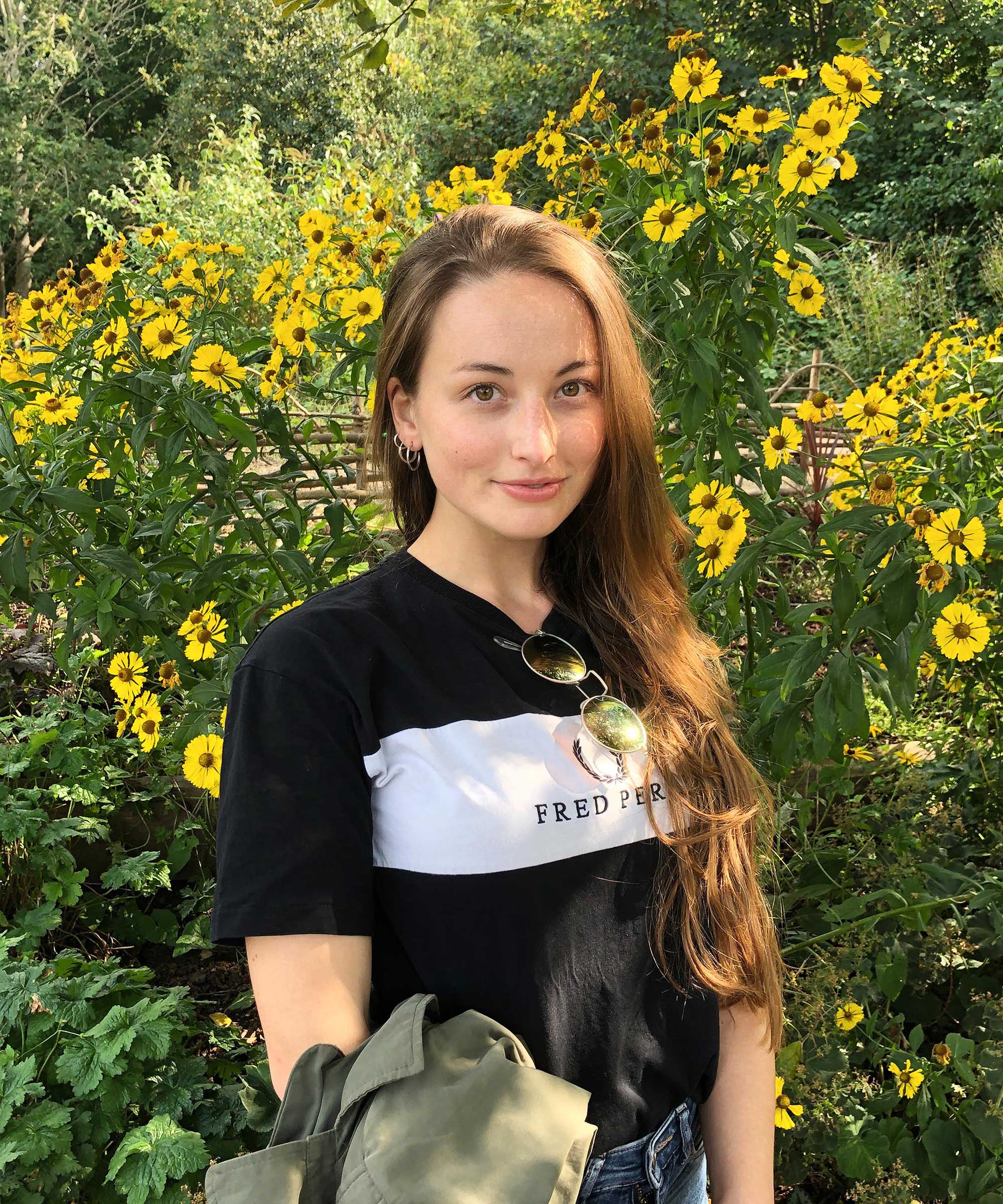
Holly started writing about gardening five years ago, and she is a regular contributor to Homes & Gardens. She has also written many gardening features for Woman & Home and Real Homes, too. She has previous experience as a professional gardener, where she helped to plant and maintain private gardens. Holly has also looked after allotment plots over the years and loves to grow her own flowers and veggies from seed. In her spare time, she enjoys visiting local gardens, botanical drawing, and tending to her ever-growing collection of houseplants.